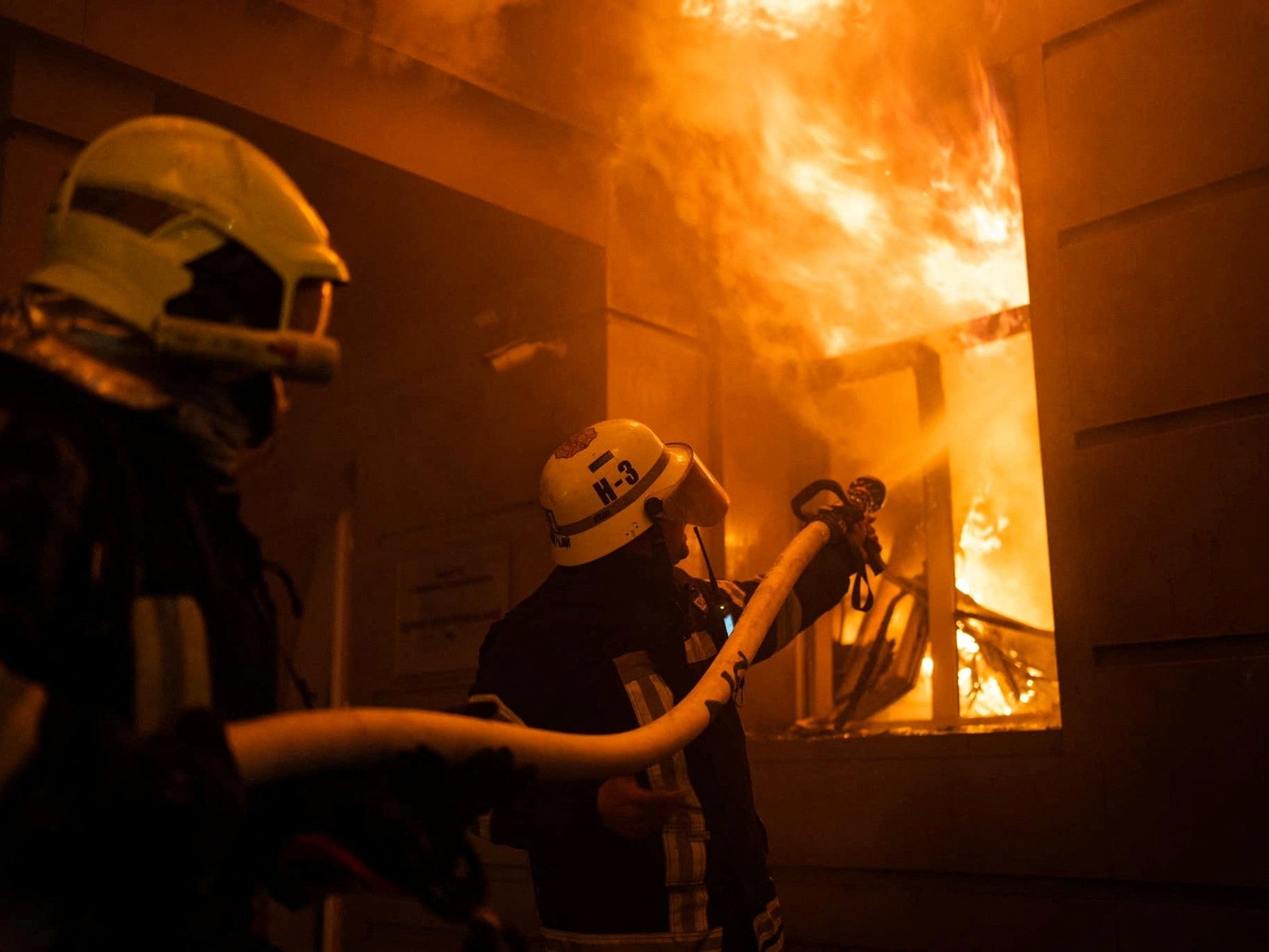Why Russia’s attacks on Ukraine’s ports matter for us all
First Moscow ended a pivotal deal allowing Ukraine to export grain, now it is repeatedly attacking the country’s ports, writes Bel Trew. The consequences will be felt from the poorest in Egypt to kitchens across Britain


When Russia hits Ukraine’s farmers, it lashes out at the world.
This has been the resounding message I’ve heard over the last year of Moscow’s invasion by Ukrainian farmers from Donbas to Dnipro.
Most recently that warning was relayed near the southern city of Nikopol. “We are just one farm, there are thousands like us,” Vitaly, 29, told me in a crumbling field. “If we cannot produce food, there will be a problem for the world,” he added.
The area once backed onto the Khakhova reservoir, one of Europe’s largest. After the Khakhova dam exploded in June – an attack that Kyiv blamed on Moscow – the reservoir dried up, turning the fields surrounding it into dust-covered wastelands.
Vitaly was not exaggerating about the impact such losses would have, given that Ukraine holds a unique position in the global food market and has long been called the breadbasket of the world. And this week his warning gained greater pertinence with four days of bombardment on Ukraine’s southern ports used for grain exports – which followed Moscow’s withdrawal from a deal ensuring the safe passage of such exports through the Black Sea.
Markian Dmytrasevych, Ukraine’s deputy agriculture minister, told The Independent that pre-war Ukraine fed 400 million people worldwide. It is the fifth-largest exporter of wheat and a major exporter of corn and barley. It is also responsible for 50 per cent of the global sunflower oil market.
Altogether, experts estimate it makes up 6 per cent of the agricultural trade around the world.
United Nations officials in Mykolaiv said the World Food Programme usually buys food from Ukraine to export to developing countries across the Middle East and Africa.
But Ukraine has struggled to grow, harvest and export its crops since Vladimir Putin invaded the country last February. For four months at the start of the war, the Kremlin blockaded Ukraine’s vital Black Sea Ports, causing a spike in food prices across the world.
That was eased with the grain export deal brokered last summer by the United Nations and Turkey. As of this July, almost 33 million tonnes of grain and foodstuffs were able to be exported because of the agreement, according to the European Union.
Of that, around 60 per cent was exported to developing countries warding off global hunger. The rest went to the developed world; the UK also relies on Ukrainian foodstuffs.
But Russia pulled out of the deal, saying the second part of an agreement allowing for greater Russian agricultural exports was not being honoured by the West.
Martin Griffiths, the United Nations aid chief, warned of impending disaster, saying that Russian and Ukrainian food and fertilisers were “crucial” to global food security.
“Global grain prices have spiked this week threatening to undo the hard-won progress,” he told the UN Security Council, adding that wheat and corn futures had risen by almost 9 per cent on Wednesday alone.
“This potentially threatens hunger and worse for millions of people,” he added.
Russia’s decision, he concluded, was not just “sad” and “disappointing” but for hundreds of millions of people across the world who rely on food aid, it was a “threat to their future and the future of their families”, he said.
Alongside pulling out of the deal, Russia has been relentlessly pounding critical Ukrainian grain export infrastructure around its strategic southern coastline – an action which the UN said may constitute war crimes.

Missiles have taken out farm buildings, port structures and food storage across the Black Sea region of Odesa. On Thursday night, two low-flying missiles hit a storage unit and then firefighters rushed to the scene to put out the fire.
Local officials have called the bombardments “hellish” and the heaviest the region has seen since the start of the invasion.
Just in the last two days 60,000 tonnes of grain, 100 tonnes of peas and 20 tonnes of barley, have been destroyed.
Ukrainian officials are concerned it is just the start and that Russia is also looking to target the border region between Romania where grain is being exported by land, vital when the sea route is effectively closed.
Moscow, meanwhile, said on Friday it was practising seizing Ukrainian ships – by firing rockets at “floating targets”. It warned that from Thursday it deems ships heading for Ukrainian waters to be potentially carrying weapons. Washington said this signalled that Russia might attack civilian shipping.
All of this came after Russia vowed to retaliate over a Ukrainian strike on a Russian-built bridge to occupied Crimea – the Ukrainian Black Sea peninsula illegally seized by Moscow in 2014. It accuses Ukraine of using the sea corridor to launch “terrorist attacks”.
And so the future does not look bright.
Russian deputy foreign minister Sergei Vershinin said on Friday that Moscow was ready to explore options on grain exports, but that there were no current talks on an alternative to the Black Sea grain deal.
The assault on port and grain infrastructure in Ukraine continues.
If the attacks go on and no deal is reached, there will be a food crisis within Ukraine that will then be felt around the planet.
It will push up food prices for everyone and could thrust the most vulnerable in parts of Africa and other regions into famine.
Subscribe to Independent Premium to bookmark this article
Want to bookmark your favourite articles and stories to read or reference later? Start your Independent Premium subscription today.








Join our commenting forum
Join thought-provoking conversations, follow other Independent readers and see their replies
Comments